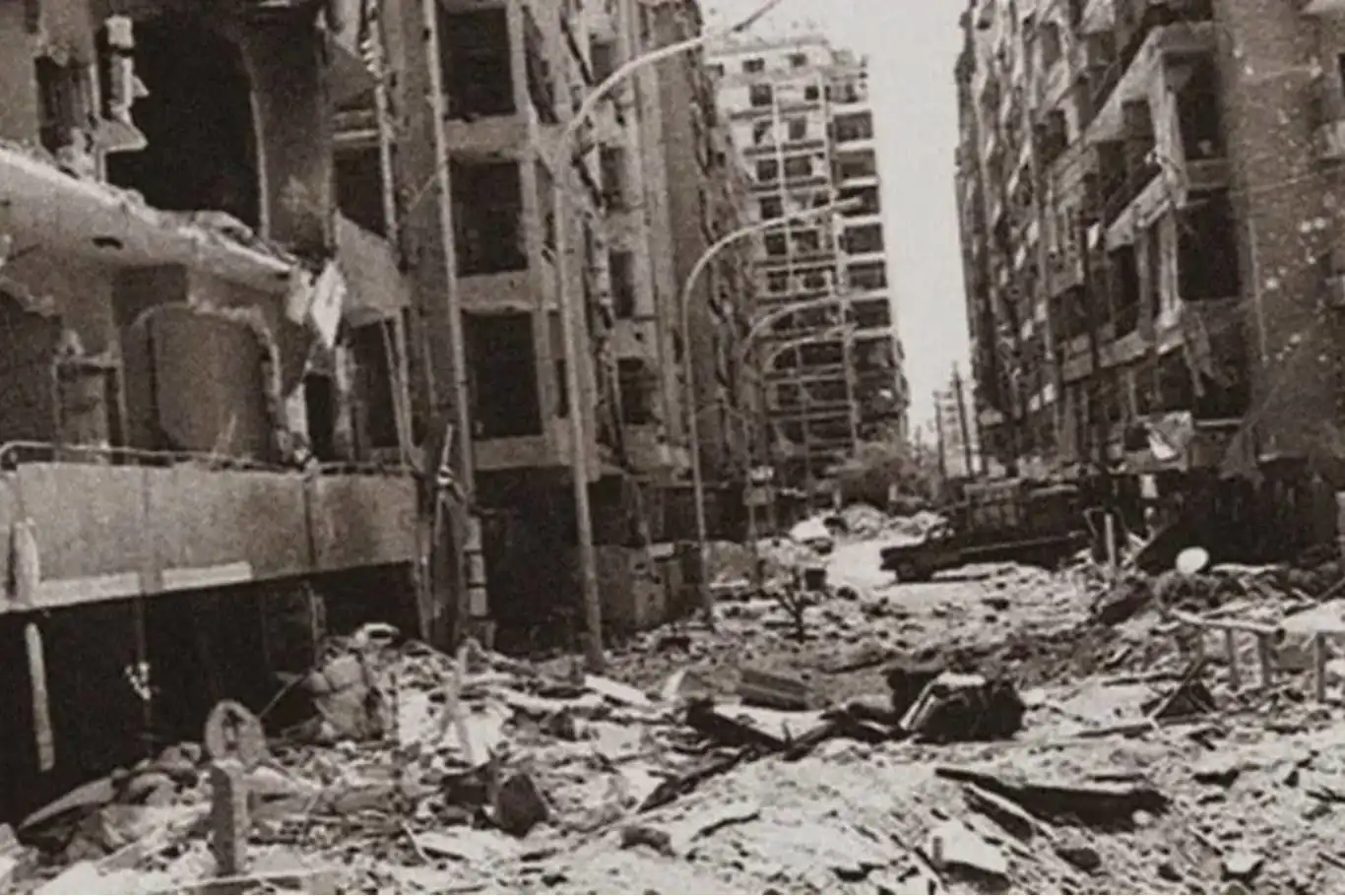Hama Massacre: A dark chapter in Syria’s history


In February 1982, the city of Hama, Syria, became the epicenter of one of the most brutal episodes in modern Middle Eastern history.
Under the governance of the Baath Party, which had come to power in 1963 through a coup, and under the command of President Hafez al-Assad, the regime unleashed a force of unprecedented violence upon its own people.
This atrocity, known as the Hama Massacre, not only left a lasting scar on the city and its inhabitants but also set a tone for authoritarian control that would persist for decades.
The Hama Massacre was one of the bloodiest crackdowns carried out by the regime, aimed at quelling an uprising by the Muslim Brotherhood. The systematic destruction and mass killings in Hama cemented the Assad family’s reputation for ruthless repression.
In late January 1982, forces loyal to Hafez al-Assad laid siege to Hama, deploying at least 20,000 troops under the command of his brother, Rifaat al-Assad. The operation involved the Defense Brigades, Special Forces, Conflict Brigades, the 21st Airborne Regiment, and various security and paramilitary units.
The attack commenced on February 2 with relentless airstrikes, followed by heavy artillery shelling. Tanks encircled the city, cutting off water, electricity, and communication lines. What followed was a systematic campaign of mass executions, widespread looting, and sexual violence. Young men over the age of 15 were abducted, separated from their families, and taken to undisclosed locations.
According to the Syrian Network for Human Rights (SNHR), at least 40,000 civilians were killed—either in the bombardment or through summary executions carried out by regime forces. An estimated 17,000 people were abducted and never seen again, with families suspecting that many were taken to Tadmor Prison in Homs, where they were later executed.
Entire neighborhoods—such as al-Sahhane, al-Kaylaniyya, al-Asida, al-Shimaliyya, al-Zenbakiya, and Bayn Hayrin—were obliterated. Other districts, including al-Barudiyya, al-Bashuriyya, al-Amiriyya, and Manah, suffered up to 80% destruction. One-third of Hama’s city center was leveled, and historical sites in the Kaylaniyya district sustained severe damage. The massacre also led to the destruction or heavy damage of 88 mosques and three churches.
In the years that followed, the Baath regime sought to erase the memory of the massacre by constructing a party headquarters and a five-star hotel on the ruins of the Kaylaniyya neighborhood.
Eyewitnesses reported that various public and industrial buildings—including mosques, schools, and factories—were repurposed as detention and torture centers. Among them were the Omar ibn Khattab Mosque, an industrial high school, a porcelain factory on the Homs road, and a cotton processing plant. Thousands of detainees were either tortured or executed at these sites.
To this day, the whereabouts of many victims remain unknown, as families were never given access to the bodies of their loved ones. The regime systematically suppressed any discussion of the massacre, making it a forbidden topic in Syria for decades.
With the fall of the Assad regime in December 2024, survivors of the Hama Massacre and their descendants have begun to speak openly for the first time. The Baath Party’s 61-year rule—and the Assad family's 53-year hold on power—ended with the opposition's takeover of Damascus on December 8, 2024. Anti-regime forces, having secured multiple victories across the country, established reconciliation centers for former regime members willing to surrender. However, not all complied, leading to clashes in various provinces.
For the people of Hama, the fall of the Baath regime has reignited long-suppressed demands for justice. Families of the victims continue to search for the burial sites of their loved ones, and human rights organizations are calling for accountability for the atrocities committed during the massacre.
The Hama Massacre stands as a stark reminder of the brutality of authoritarian rule and the resilience of those who suffered under it. As Syria moves into a new era, the fight for truth, justice, and reconciliation remains at the forefront of its future. (ILKHA)
LEGAL WARNING: All rights of the published news, photos and videos are reserved by İlke Haber Ajansı Basın Yayın San. Trade A.Ş. Under no circumstances can all or part of the news, photos and videos be used without a written contract or subscription.
Belgium has a new prime minister, Bart De Wever, whose political purpose has long been to break up the nation, gut state structures, and grant more autonomy to his northern Flanders at the expense of other regions.
The death toll in Gaza has risen to 47,518, with the majority being women and children, since the start of the Israeli genocide in October 2023, according to medical sources.
US President Donald Trump has announced plans to cut all future funding to South Africa over allegations that the country is confiscating land and "treating certain classes of people very badly."